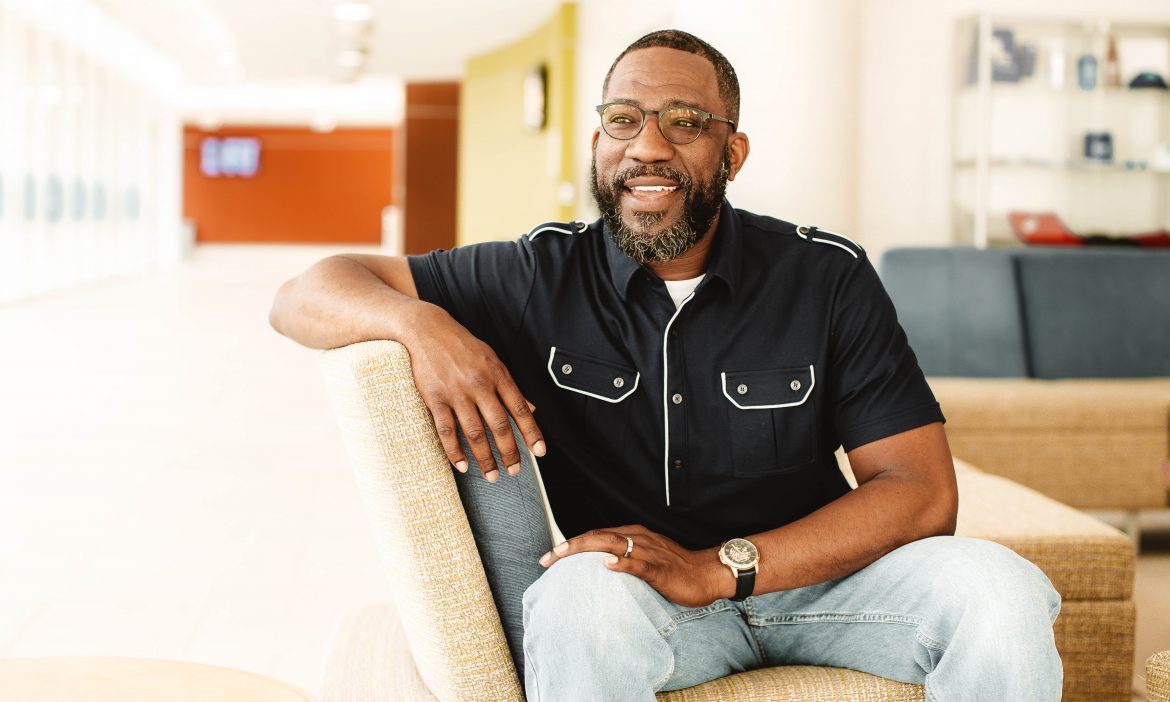Juneteenth, or African-American Independence Day, commemorates June 19, 1865, when slaves in remote Galveston, Texas were officially notified they’d been freed by President Abraham Lincoln. News of that freedom was a long time coming, as it had been granted through the signing of the Emancipation Proclamation more than two years earlier.
Last year, amid a renewed focus on racism and social injustice, our leadership team asked our employees, “What can we do that will resonate and make a real difference?” One of the things they heard was that Juneteenth is a historical milestone worth celebrating with family, friends and communities.
This year, BlueCross has made Juneteenth a paid holiday for our employees. It’s part of a broad effort to create lasting social change that also sees us hosting a series of internal educational events and activities leading up to the company-wide observance.
Below, four of our employees share what Juneteenth means to them, how they plan to recognize it this year, and why BlueCross making it a company holiday was the right step.
Timothy Bowman, Sr., subrogation analyst
Timothy will make Juneteenth a family affair with his wife, daughter and two sons. “It will also be special to celebrate with my father, sons and grandsons, having four generations of men side by side,” he says. 
“We plan to join a community event here in Chattanooga, and then hopefully watch other celebrations throughout the country.”
In the midst of enjoying time with loved ones, Timothy will ensure the historical significance of June 19 isn’t overlooked.
“Juneteenth represents the day that every slave knew they were free — and for many, that awareness came years after freedom for every African-American was signed into law,” Timothy says.
“At the very least, I feel we all must take a moment of silence to reflect on the time that passed before so many had access to their full rights as American citizens.”
“I appreciate this time we’ll have to spend together with family and friends,” Timothy adds. “BlueCross making Juneteenth a company holiday shows that the company understands the injustice and suffering that my ancestors had to endure.”
While he looks forward to 2021’s Juneteenth, Timothy is more excited about what the future holds for this milestone — and the role he hopes to play.
“I’ve been inspired during this past year to further research the history of Juneteenth,” Timothy says. “I’m looking forward to passing that knowledge on to others.”
Ebony Owens, provider network manager
For Ebony, widespread recognition of Juneteenth’s historical significance continues to be elusive.

“I wish this day would be taught in all schools to give a clear and concise explanation on how and when we were truly freed,” she says. “History books continue to focus on the 1863 Emancipation Proclamation from Abraham Lincoln, instead of acknowledging not all slaves were freed by this document. It wasn’t until June 19, 1865 — over two years later — that all enslaved Black people were free by the executive decree. Thus, Juneteenth was born.”
“We often have to remind ourselves and others that African-Americans are as important to our nation as any other culture, ethnicity and race.”
However, Ebony’s encouraged by the growing number of Juneteenth celebrations she’s both observed and attended in recent years — and companies like BlueCross listening to their employees and officially honoring meaning of Juneteenth.
“I appreciate BlueCross focusing on culture and diversity and making Juneteenth a company holiday,” she says. “In order to move forward and see change in the way our race is portrayed, no step is too small. Juneteenth is a time where our people come together to celebrate a beautiful culture that is often overlooked.”
This year, Ebony plans to host a small cookout at her Memphis home with “music, food, games, love, and laughs.”
“When we gather, we’re able to display and appreciate the talents of our culture and our people, and pay homage to our ancestors who paved the way,” Ebony says. “It is our hope and prayer that we will eventually reach equality and end racism instead of always being stereotyped.”
Jennifer Carroll, Medical Home Partnership care coordinator
Jennifer’s feelings about Juneteenth can be summed up in one word: joy.
“When I learned BlueCross made Juneteenth a paid holiday, I literally shouted,” the Memphis-based employee recalls. “My husband Lieutenant looked at me and said, ‘What?’ I had goosebumps and my eyes welled with tears.”

“My excitement came from a feeling of relief and motivation. Our company is part of a movement that I’m hoping will only improve our options and our choices in everything we do.”
Juneteenth holds special significance for Jennifer and Lieutenant. Twenty years ago they met in Denver, where celebrating Juneteenth has long been an annual tradition.
“We used to attend Denver’s Juneteenth festival with friends, which included live bands, traditional African dancing and street vendors,” Jennifer says. “Since moving to Memphis, we’ve celebrated Juneteenth on a more personal level, but we sure miss Denver’s annual event. We haven’t found one that can compare yet.”
Fortunately, comparisons aren’t necessary as Jennifer is proud to honor what she and her husband call Emancipation Day, even in a more low-key way.
“My plans for this Juneteenth are to be overjoyed — again! — in celebration of this important holiday,” she says.
“Whether we’re with hundreds of people or just with friends and family in our back yard, we can eat well, appreciate how far we’ve come and where we need to go, and thank God for this day.”
Meyoshia Powell, behavioral health case manager
For Meyoshia, honoring Juneteenth has long been a family tradition. That comes from growing up surrounded by knowledge and those willing to share it.
“My parents were my Black History 101 teachers,” Meyoshia says. “One of the things they instilled in me was to go through life strengthening your mind. One of the ways I did that was spending time with my paternal grandfather, who was a wealth of knowledge. He was born in 1902 and lived to be 100.”
Meyoshia and her brother have memories of their dad taking both of them to the library when they were in elementary school, and their parents encouraging them to dig deeper to learn more about subjects that interested them — especially when those topics were challenging.
“At an early age, I knew the definition of ‘slave’ and was troubled by it,” Meyoshia says. “However, when you know your roots and the hardships your ancestors overcame, you’re motivated to forge your own path in life and take advantage of opportunities your ancestors weren’t granted.”
Meyoshia believes that BlueCross recognizing Juneteenth as a company holiday is a big step forward on its path to greater diversity and inclusion.
“BlueCross took what was really an industry-leading step during a crucial time for our country,” she says. “It just shows they value their employees’ perspectives, and that the company unequivocally stands against racism. They mirror their words, and this is a show of genuine support.”
This year, Meyoshia is pleased that she can celebrate Juneteenth by safely gathering with family and friends once again.
“And for my family and friends, it is a celebration,” she says. “We’re going to have fireworks and recognize family birthdays and unions. But most importantly, we will gather to remember our ancestors and educate the younger generation on their roots and history. Juneteenth has finally and officially stamped the date in history that African-Americans have free will and aren’t property; we are America.”



 Jesse joined the BlueCross BlueShield of Tennessee corporate communications team in 2017. A Chattanooga native, he has more than 15 years’ experience in content creation, management, and strategy for consumer audiences, including a six-year stint in health care marketing.
Jesse joined the BlueCross BlueShield of Tennessee corporate communications team in 2017. A Chattanooga native, he has more than 15 years’ experience in content creation, management, and strategy for consumer audiences, including a six-year stint in health care marketing.